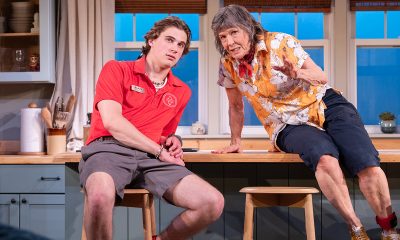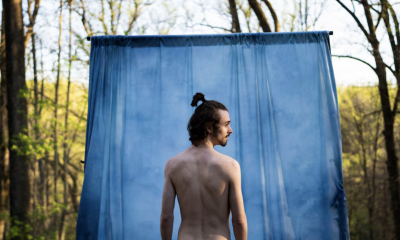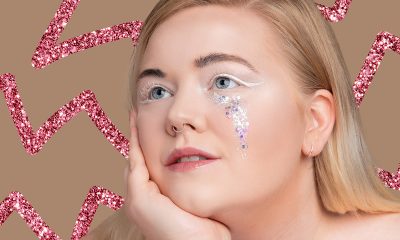Arts & Entertainment
In full ‘Force’
Washington National Opera’s modern production restores a Verdi classic
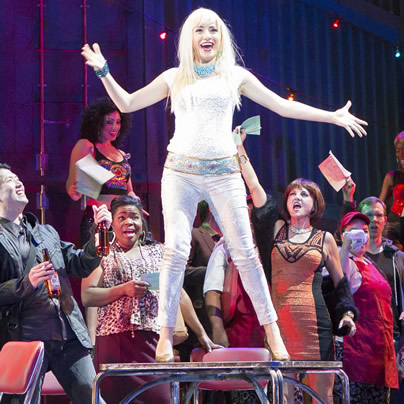
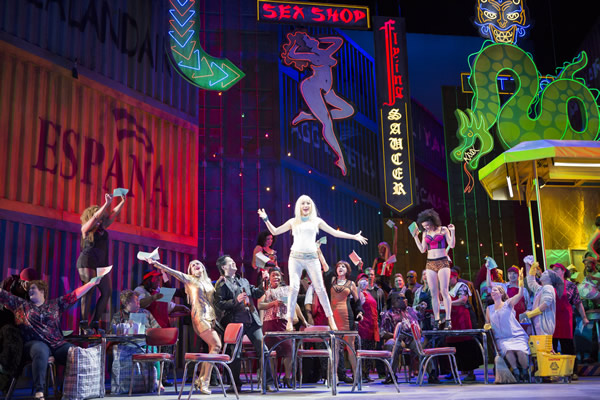
Washington National Opera’s Verdi reboot gives the show a bold, modern setting. (Photo by Scott Suchman; courtesy WNO)
‘The Force of Destiny’
Through Oct. 26
The Kennedy Center
2700 F St., NW
Tickets $25-$300
kennedy-center.org/wno
202-416-8500
As conductor Xian Zhang mounted the podium Saturday evening for the Washington National Opera’s opening night of “The Force of Destiny,” the audience seemed to lean in, eagerly anticipating the driving overture that is the work’s most recognizable calling card. Yet, only silence remained. The curtain rose on a dumb-show dinner scene in a luxurious home, where a family broke bread and a maid stood anxiously by the large window, looking out into the blackest of nights.
Like the unsuspecting characters of Giuseppe Verdi’s sweeping work “La Forza del Destino” (WNO oddly translates the title into English), the audience would have to wait for destiny to come to us on its own terms. Director Francesca Zambello’s creative opening gave the story an unexpected immediacy, especially as the tragic events surrounding the heroine Leonora (Adina Aaron) and her lover Don Alvaro (Giancarlo Monsalve) unfolded in the first scene. Once the die was cast, however, the overture blared from the pit as an interlude between the life the protagonists dreamed of and the tumultuously bloody years ahead.
Zambello, a lesbian, moved the drama from the mid-1800s to the present day, complete with signs advertising sex, pole dancers displaying their wares outside a club and costumes evoking a city’s downtrodden, but this change of scene isn’t done thoughtlessly to bring in new opera fans. It actually works — beautifully at times.
Leonora, costumed as a vagrant, flees her broken family home and the wrath of a brother hell-bent on killing her, and lands outside an urban monastery, with graffiti scrawled on its walls and a neon cross over the door. Yet, as she drops to her knees and begs God to rescue her from this miserable life, the plight of the modern-day heroine seems less antiquated and more real, reminding us of our own dark nights of the soul when we’ve turn to a God we may or may not believe in to see us through ‘til dawn.
The vision doesn’t always work seamlessly — penitent monks wandering through a raucous, sex-crazed street crowd seems more fitting for an earlier era — but the production takes what can be a tottering opera and restores it to a seat reserved for Verdi’s best musical and dramatic writing.
‘Forza’ is not an easy work to cast, given the intense demands for protagonists and chorus alike, but under Zhang’s evocative baton, the artists delivered crackling, if not always subtle, performances.
Aaron was an electrifying presence, her body trembling with pathos, almost as if she was unable to control the power coursing through her. Her final act aria, the famed “Pace, Pace, mio Dio,” was simply perfect in both vocal and dramatic delivery. It may have been opening night nerves, but elsewhere in the opera, she sometimes sped through passages that required focused negotiation between a marvelously dark chest voice and her more velvety middle register, and a couple of notes sounded a hair off-pitch. Hopefully, these kinks will iron themselves out, because her overall performance is spectacular.
The lower-voiced roles took home the prize among the men. Mark Delavan’s Carlo never seemed to flag over the course of a long evening, his rich tone creamy from bottom to top. Italian bass Enrico Iori was a sumptuously formidable, yet also delicately heartbreaking, Father Guardino, and the rousing chemistry between him and Aaron makes one wonder what the two could make of “Don Carlo.”
The dark tenor hero Don Alvaro is a complex role. His music often sits in places tenors would rather muscle through in order to sail onwards to their glorious high notes, and the character’s emotional journey is deliciously multifaceted. Monsalve delivered acting in spades, giving us a sexy and then tormented Alvaro, but his singing was uneven. He seemed capable of only two dynamic choices — shout and bellow — and while, when appropriate, those choices were lovely, they made for a loud night.
By the opera’s end, though, when death had claimed so many and forgiveness seemed like the frailest of hopes, it was Zambello who walked away with the crown for a production that not only made us listen, but also made us think.
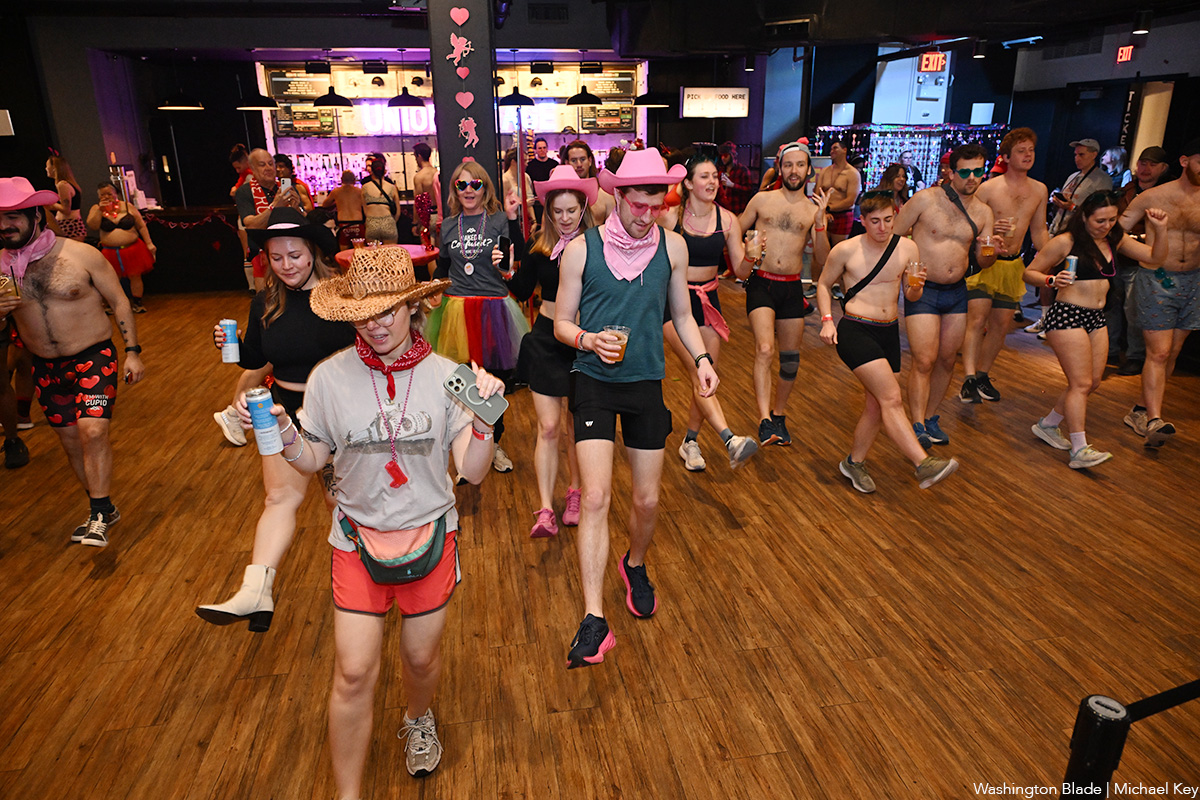
Cupid’s Undie Run, an annual fundraiser for neurofibromatosis (NF) research, was held at Union Stage and at The Wharf DC on Saturday, Feb. 21.
(Washington Blade photos by Michael Key)
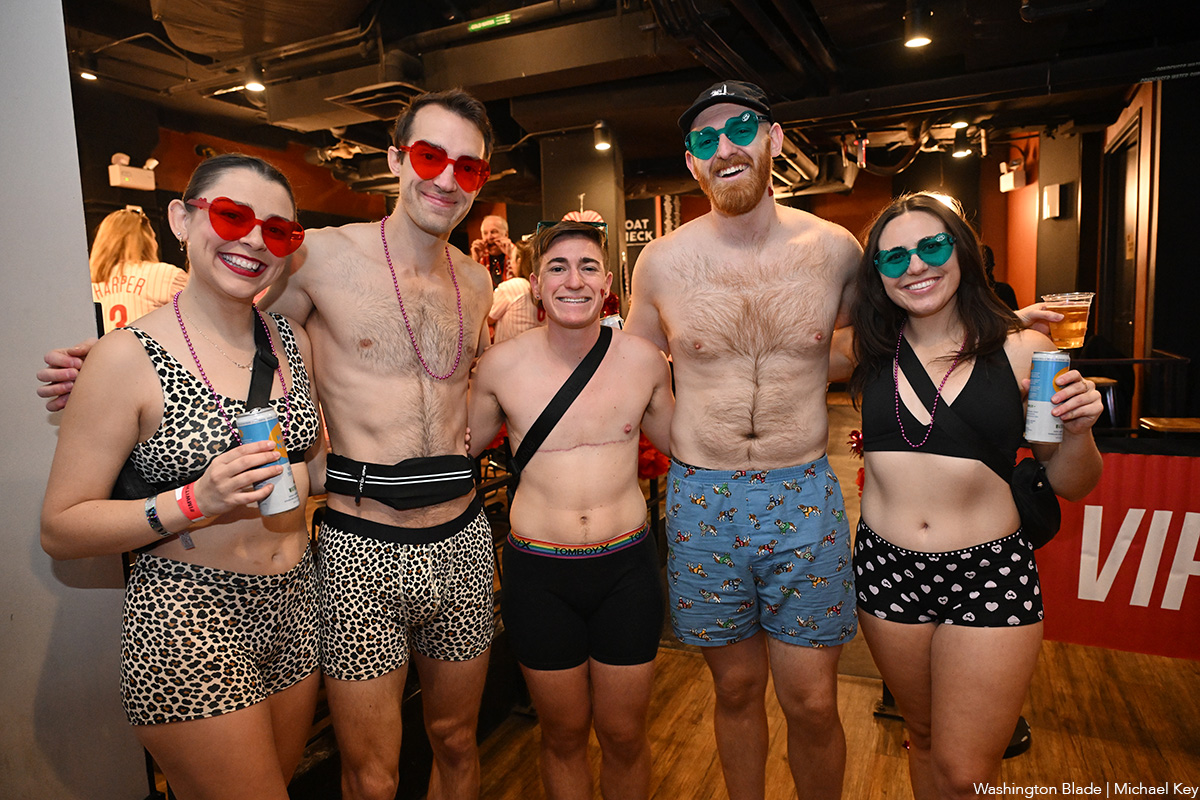
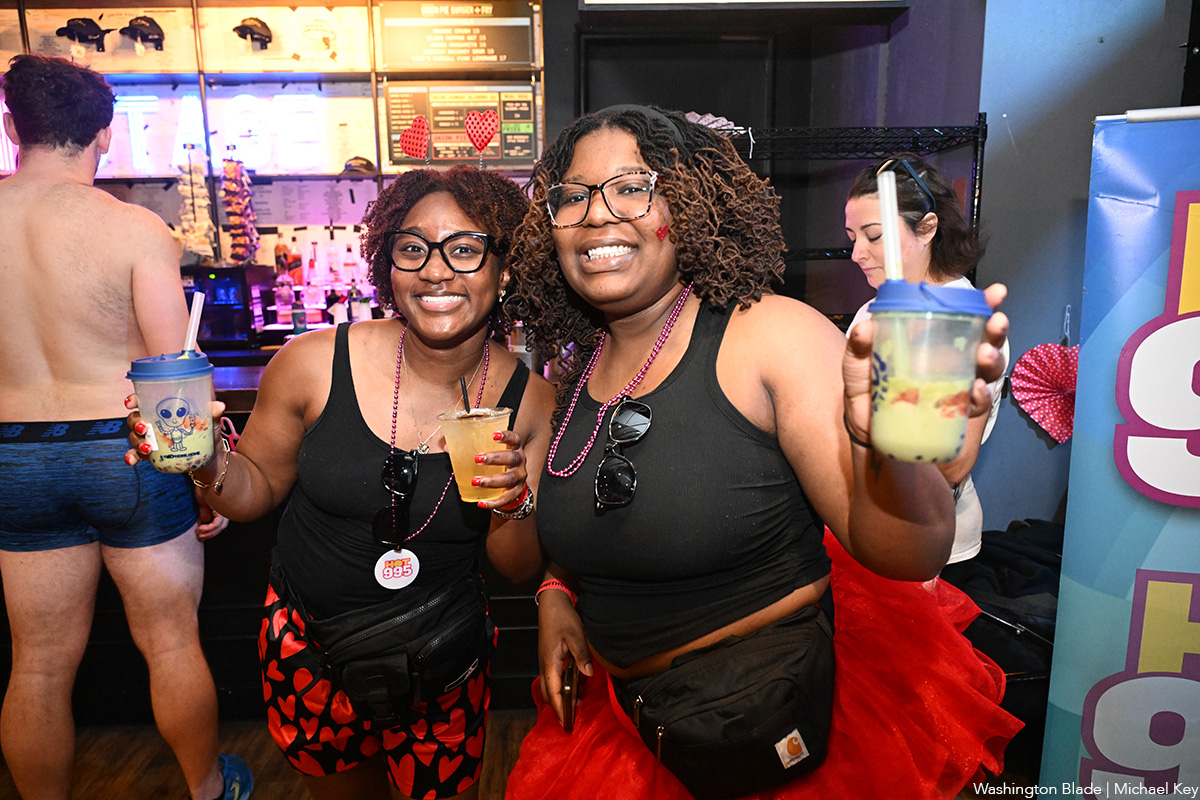
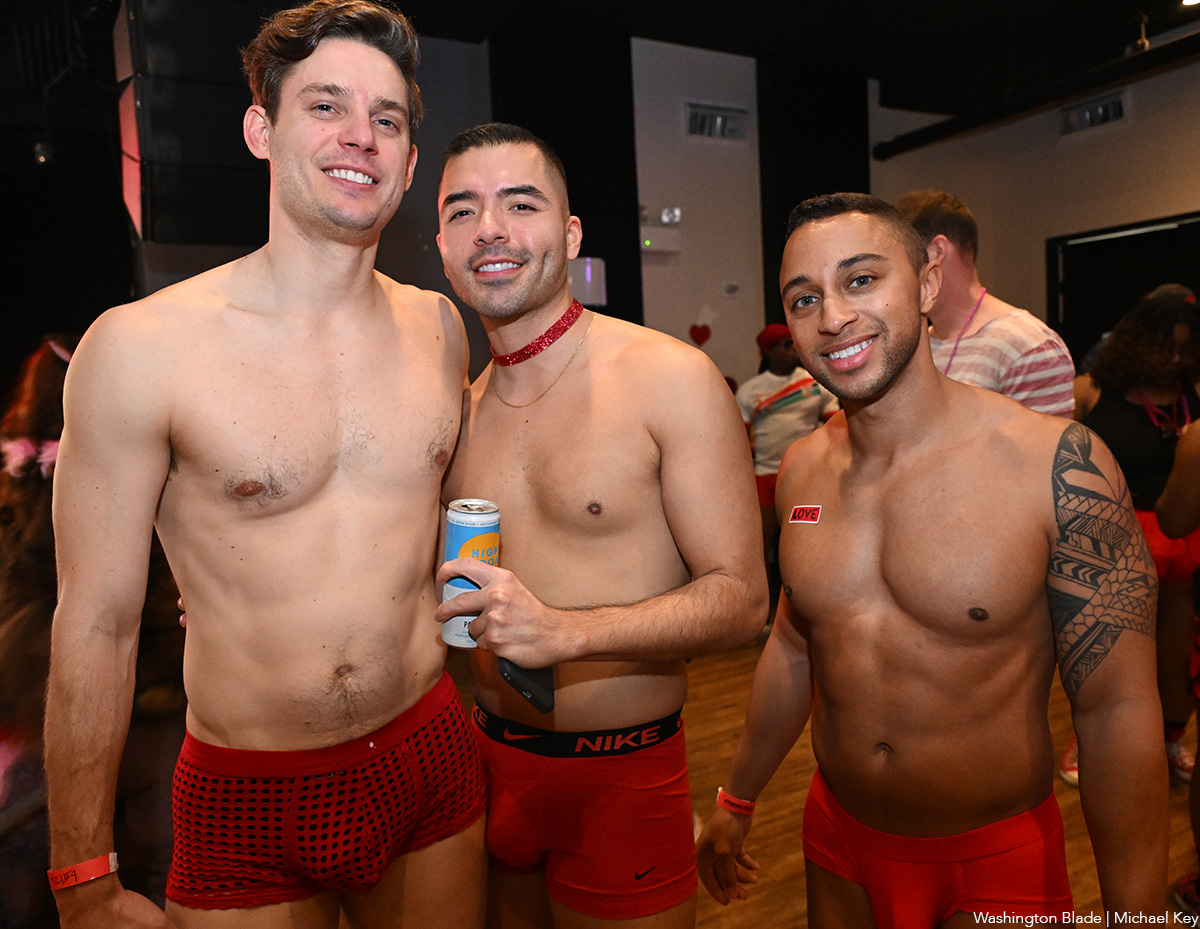
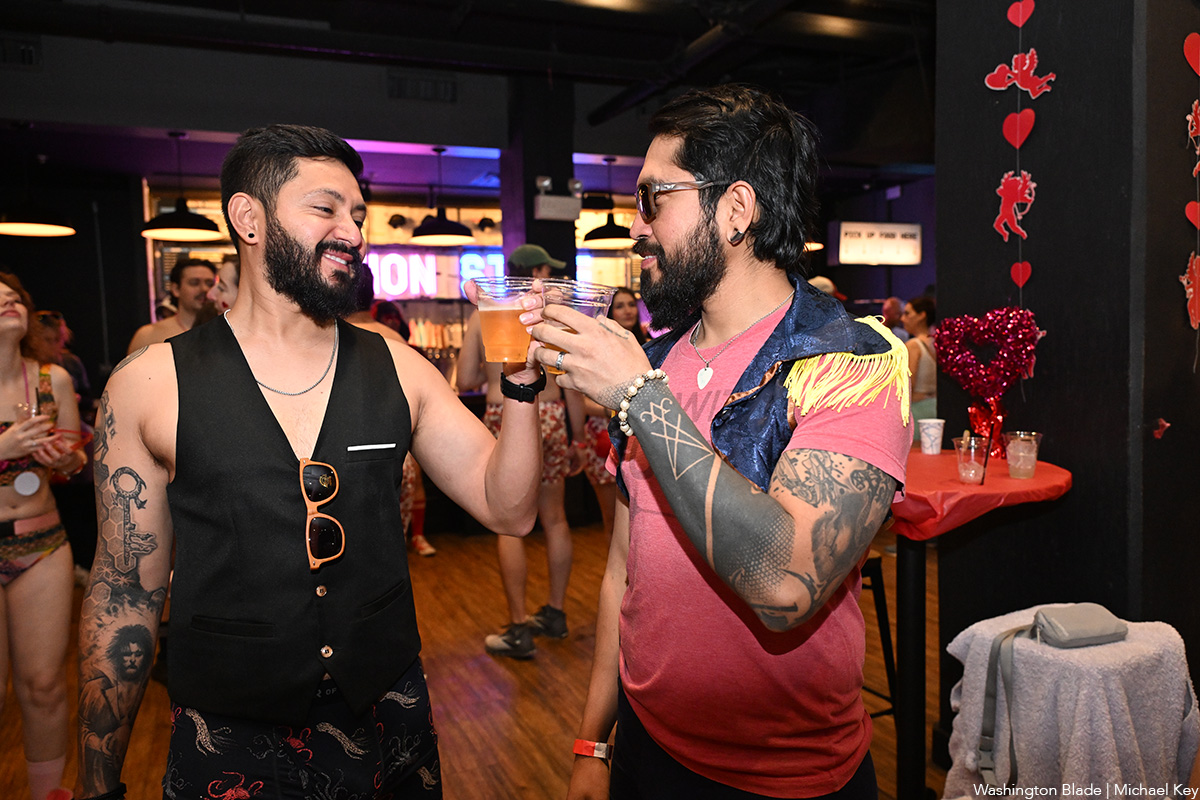
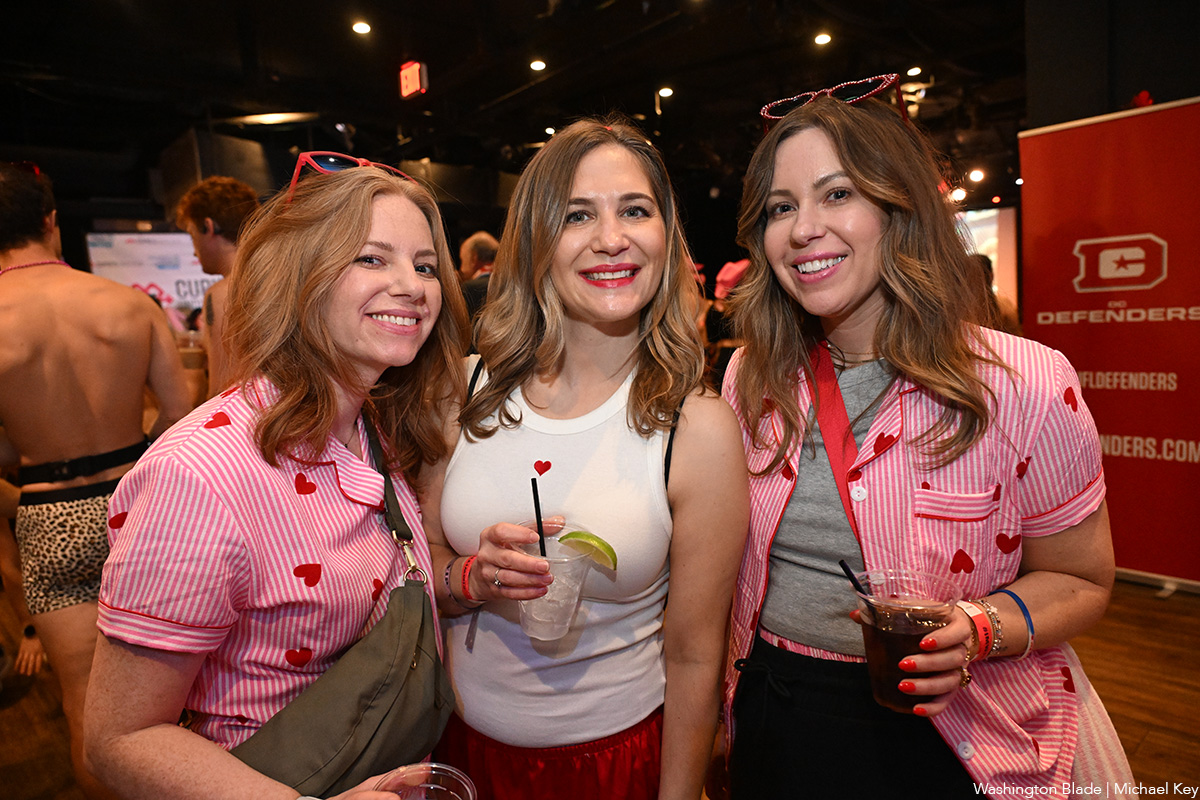
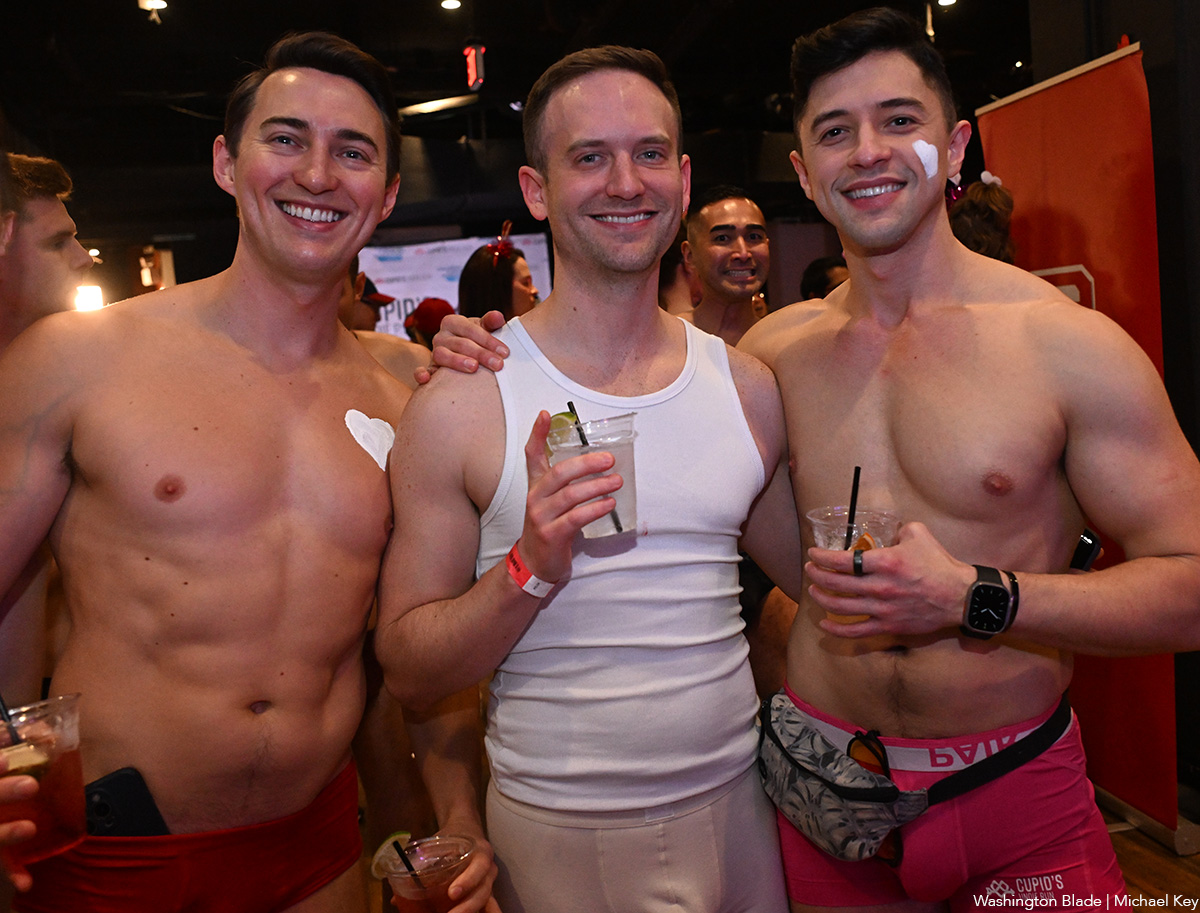
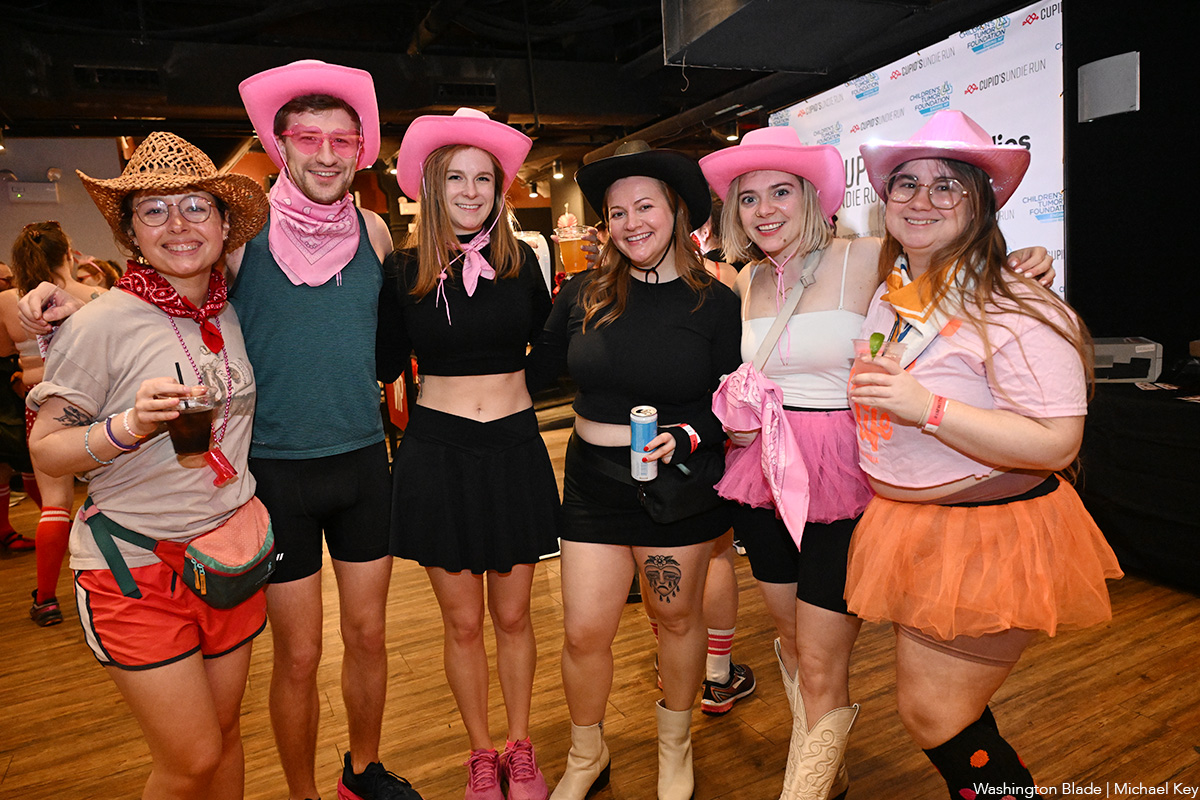
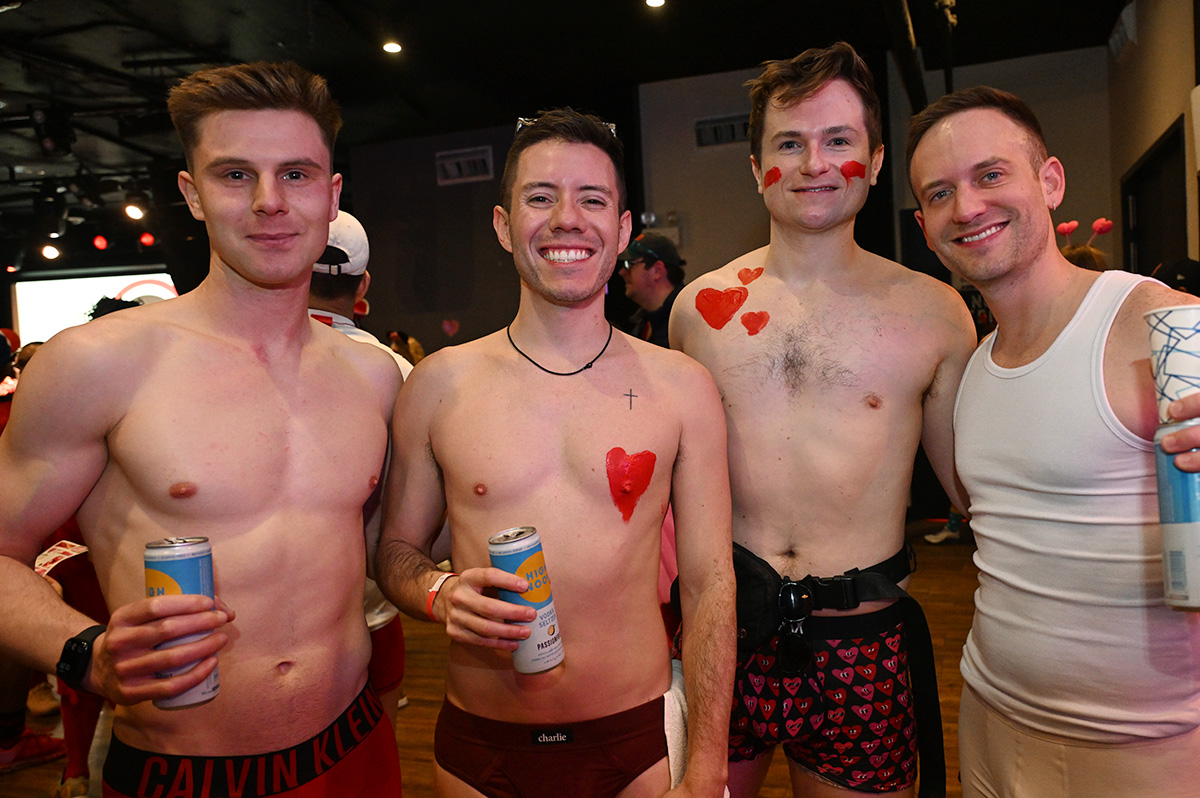
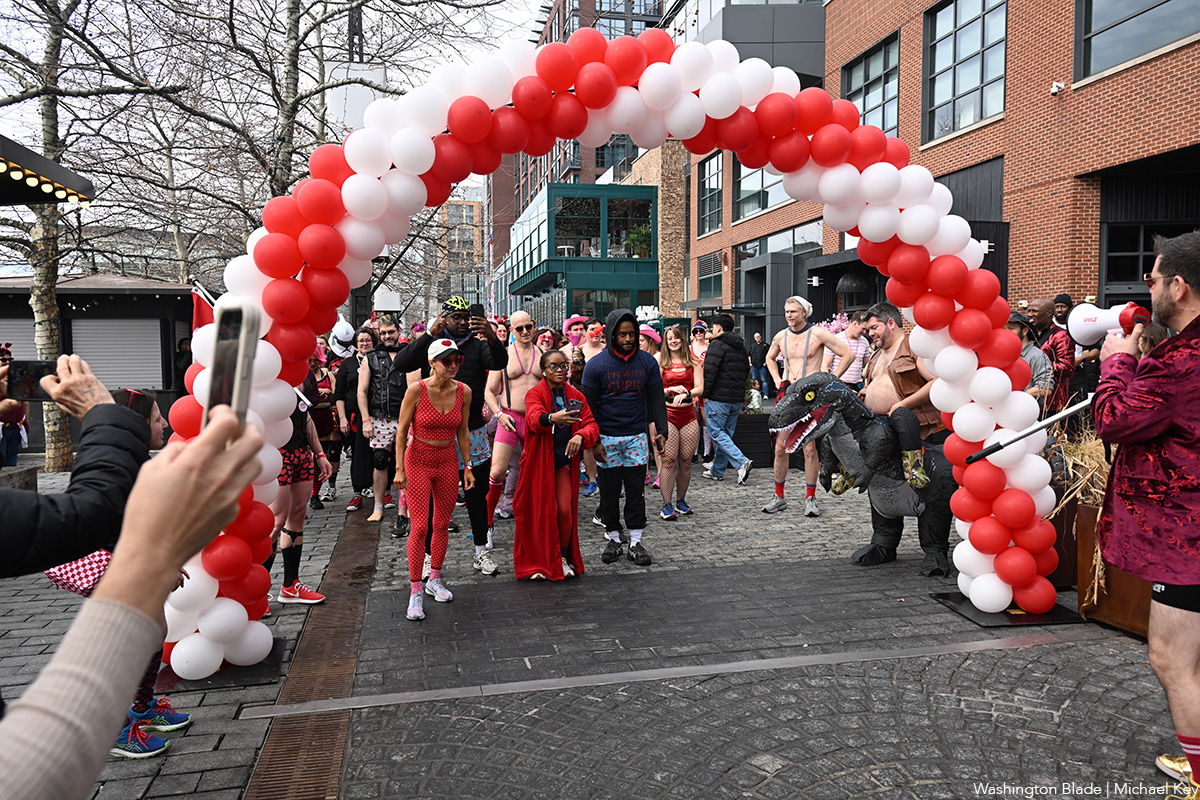
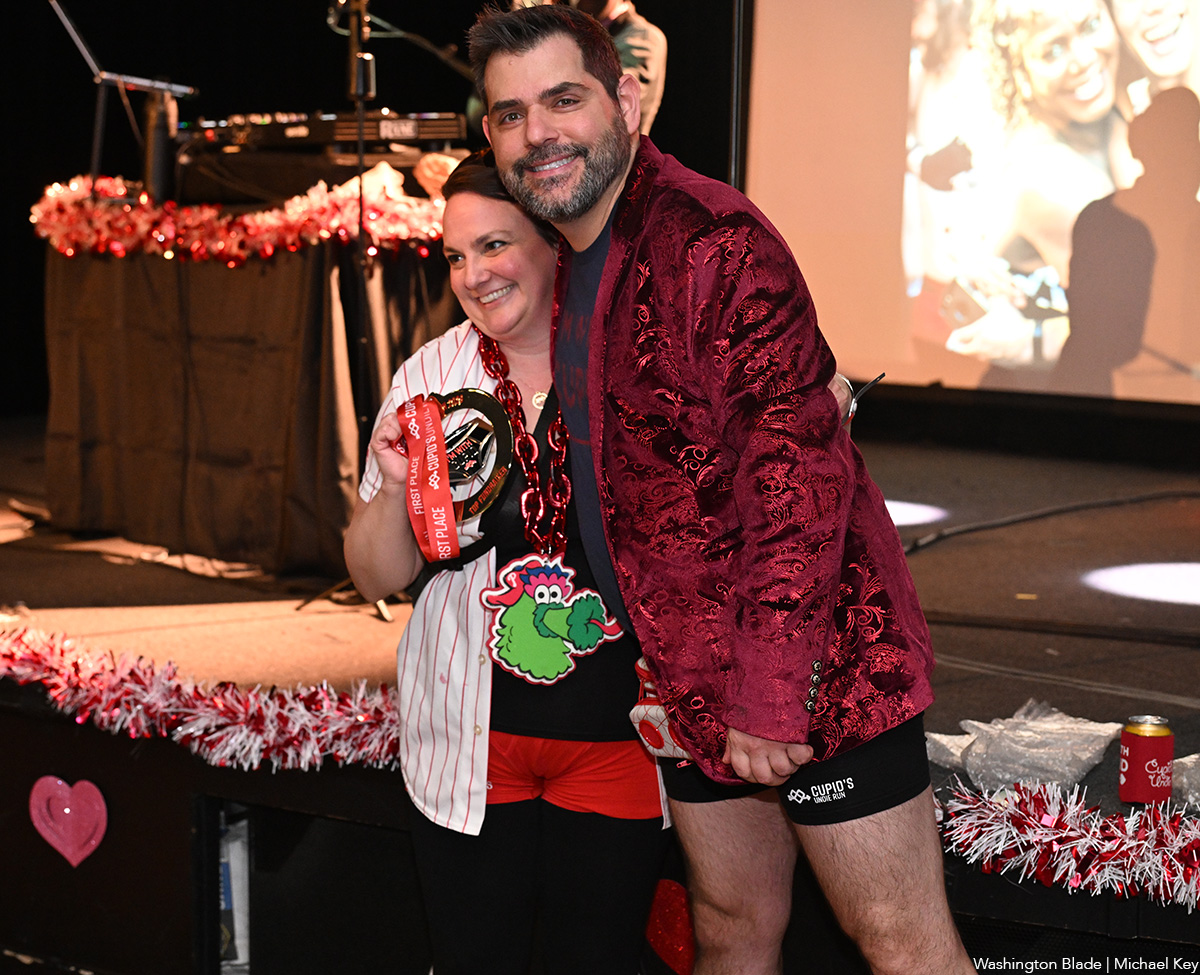
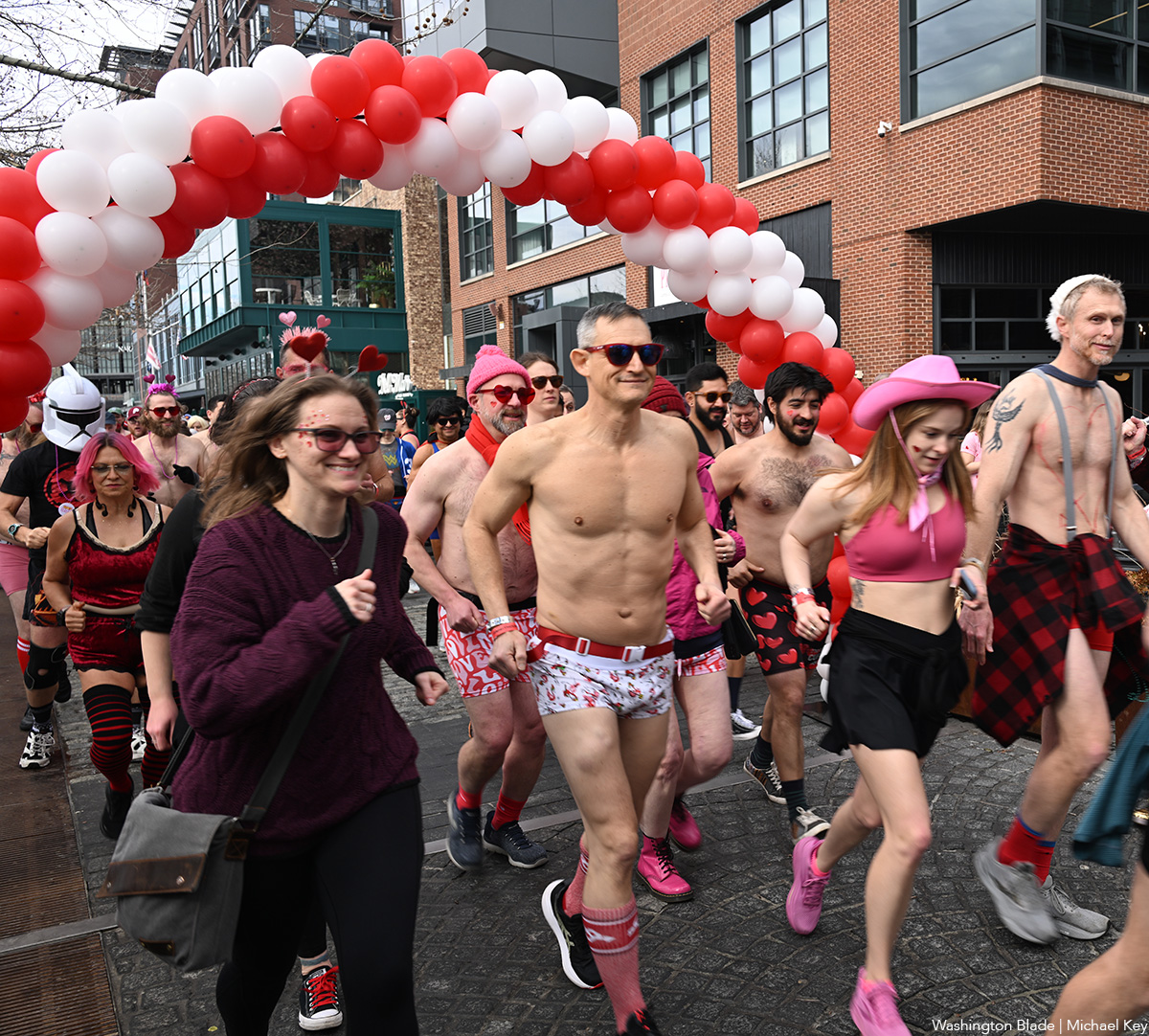
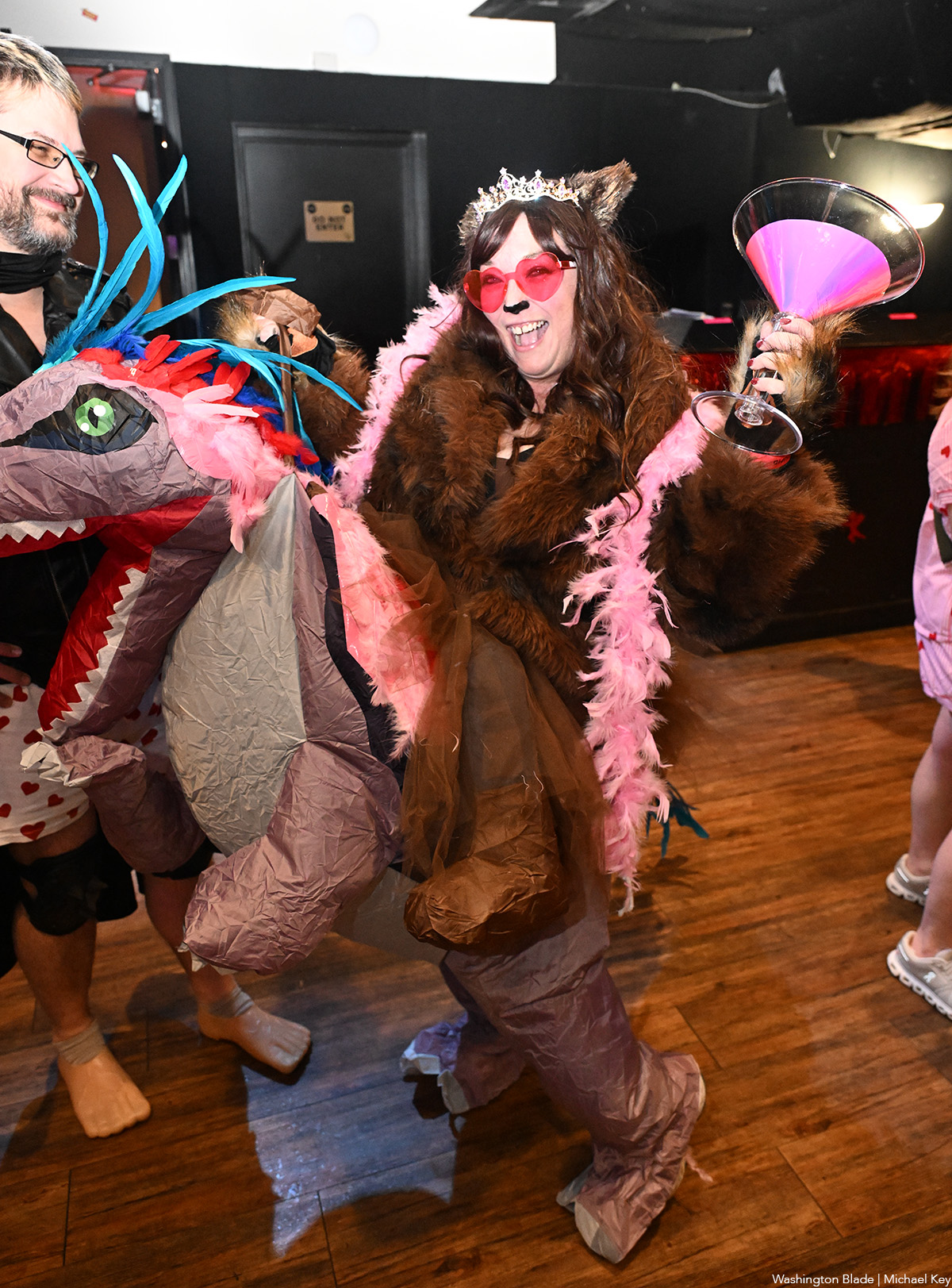
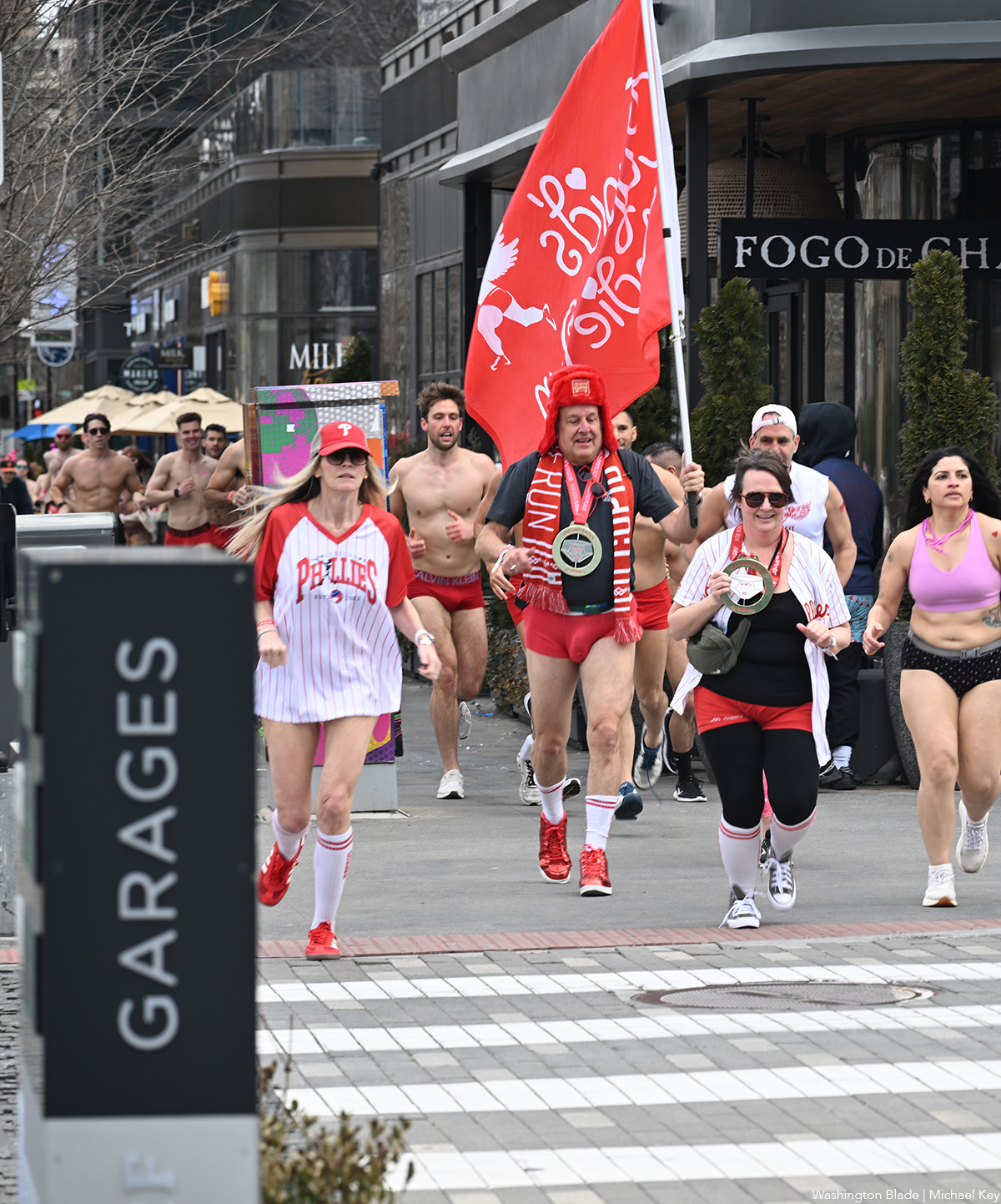
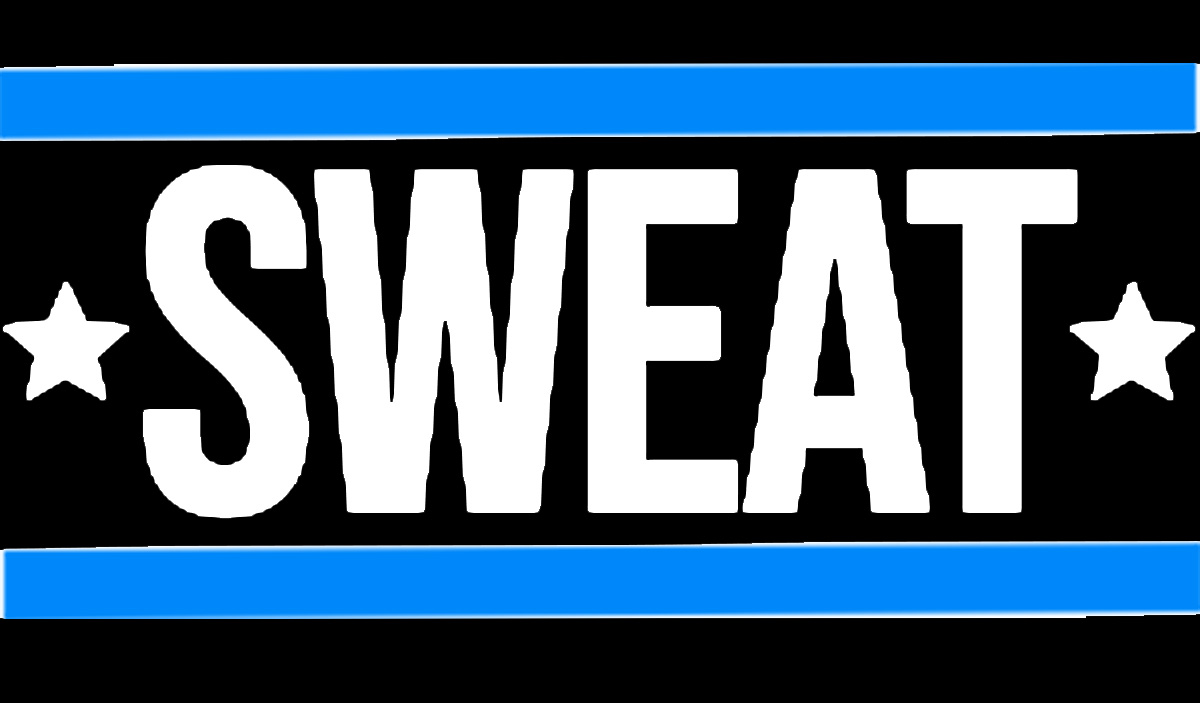
Sweat DC is officially expanding to Shaw, opening a new location at 1818 7th St., N.W., on Saturday, March 28 — and they’re kicking things off with a high-energy, community-first launch event.
To celebrate, Sweat DC is hosting Sweat Fest, a free community workout and social on Saturday, March 14, at 10 a.m. at the historic Howard Theatre. The event features a group fitness class, live DJ, local food and wellness partners, and a mission-driven partnership with the Open Goal Project, which works to expand access to youth soccer for players from marginalized communities.
For more details, visit Sweat DC’s website and reserve a spot on Eventbrite.

Friday, Feb. 20
Center Aging Monthly Luncheon with Yoga will be at noon at the D.C. LGBTQ+ Community Center. Email Mac at [email protected] if you require ASL interpreter assistance, have any dietary restrictions, or questions about this event.
Trans and Genderqueer Game Night will be at 7 p.m. at the D.C. Center. This will be a relaxing, laid-back evening of games and fun. All are welcome! We’ll have card and board games on hand. Feel free to bring your own games to share. For more details, visit the Center’s website.
Go Gay DC will host “First Friday LGBTQ+ Community Social” at 7 p.m. at Hotel Zena. This is a chance to relax, make new friends, and enjoy happy hour specials at this classic retro venue. Attendance is free and more details are available on Eventbrite.
Saturday, Feb. 21
Go Gay DC will host “LGBTQ+ Community Brunch” at 11 a.m. at Freddie’s Beach Bar & Restaurant. This fun weekly event brings the DMV area LGBTQ community, including allies, together for delicious food and conversation. Attendance is free and more details are available on Eventbrite.
LGBTQ People of Color will be at 7 p.m. on Zoom. This peer support group is an outlet for LGBTQ People of Color to come together and talk about anything affecting them in a space that strives to be safe and judgement free. There are all sorts of activities like watching movies, poetry events, storytelling, and just hanging out with others. For more information and events, visit thedccenter.org/poc or facebook.com/centerpoc.
Sunday, Feb. 22
Queer Talk DC will host “The Black Gay Flea Market” at 1 p.m. at Doubles in Petworth. There will be more than 15 Black queer vendors from all over the DMV in one spot. The event’s organizers have reserved the large back patio for all vendors, and the speak easy for bar service, which will be serving curated cocktails made just for the event (cash bar.) DJ Fay and DJ Jam 2x will be spinning the entire event. For more details, visit Eventbrite.
Monday, Feb. 23
“Center Aging: Monday Coffee Klatch” will be at 10 a.m. on Zoom. This is a social hour for older LGBTQ adults. Guests are encouraged to bring a beverage of choice. For more information, contact Adam at [email protected].
Tuesday, Feb. 24
Coming Out Discussion Group will be at 7 p.m. on Zoom. This is a safe space to share experiences about coming out and discuss topics as it relates to doing so — by sharing struggles and victories the group allows those newly coming out and who have been out for a while to learn from others. For more details, visit the group’s Facebook.
Genderqueer DC will be at 7 p.m. on Zoom. This is a support group for people who identify outside of the gender binary, whether you’re bigender, agender, genderfluid, or just know that you’re not 100 percent cis. For more details, visit genderqueerdc.org or Facebook.
Wednesday, Feb. 25
Job Club will be at 6 p.m. on Zoom upon request. This is a weekly job support program to help job entrants and seekers, including the long-term unemployed, improve self-confidence, motivation, resilience and productivity for effective job searches and networking — allowing participants to move away from being merely “applicants” toward being “candidates.” For more information, email [email protected] or visit thedccenter.org/careers.
Asexual and Aromantic Group will meet at 7 p.m. on Zoom. This is a space where people who are questioning this aspect of their identity or those who identify as asexual and/or aromantic can come together, share stories and experiences, and discuss various topics. For more details, email [email protected].
Thursday, Feb. 26
The DC Center’s Fresh Produce Program will be held all day at the DC Center. To be more fair with who is receiving boxes, the program is moving to a lottery system. People will be informed on Wednesday at 5 p.m. if they are picked to receive a produce box. No proof of residency or income is required. For more information, email [email protected] or call 202-682-2245.
Virtual Yoga Class will be at 7 p.m. on Zoom. This free weekly class is a combination of yoga, breathwork and meditation that allows LGBTQ community members to continue their healing journey with somatic and mindfulness practices. For more details, visit the DC Center’s website.
-

 National5 days ago
National5 days agoTrump falsely links trans people to terrorism
-

 Virginia5 days ago
Virginia5 days agoFellow lawmakers praise Adam Ebbin after Va. Senate farewell address
-

 National5 days ago
National5 days agoLGBTQ activists mourn the Rev. Jesse Jackson
-

 Massachusetts4 days ago
Massachusetts4 days agoEXCLUSIVE: Markey says transgender rights fight is ‘next frontier’

